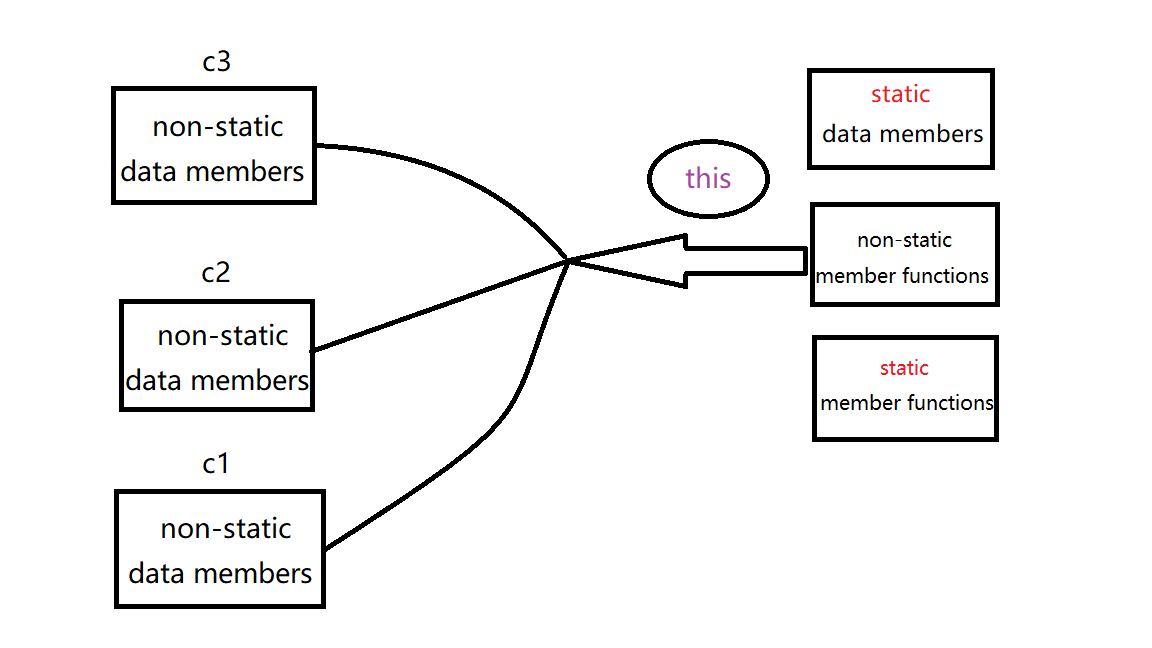C++运算符重载
C++运算符的重载
本人刚接触C++,学习时间不长,但是最近在设计class遇到一个关于运算符重载的问题。虽然最后也是通过度娘很easy的解决了,但是我感觉这里有一个容易被人们忽略的细节问题,尤其是在设计class时。
目前就我的学习水平来看,我吧运算符重载分为了两种。一种是公开的运算符重载,一种是被封装起来的运算符重载。下面我们通过代码和示例进行一下说明,本人道行甚浅,若有错误,还望斧正。
一、公开的运算符重载:
首先我们需要class一个Arrow类。
这种运算符重载是在一个作用域内(scope)的全局重载。不会被封装进某一个class内。在class内部的运算符重载,由于重载时,重载的操作函数作为这个类的一个member function(成员函数)。所以会带一个this pointer(this 指针)作为默认参数。
//!我们可以这样设计 class Arrow; Arrow operator+(const Arrow& one, const Arrow& other);//这样没有了this pointer Arrow Arrow::operator+(const Arrow& other);//这样函数会有默认参数 this pointer
二、class(类)内的运算符重载:
#include <iostream> using std::cout; using std::endl; using std::cin; class Arrow { public: Arrow(float x = 0, float y = 0, float z = 0) :m_x(x),m_y(y),m_z(z) {} Arrow(const Arrow& a) { m_x = a.x(); m_y = a.y(); m_z = a.z(); } Arrow& operator=(const Arrow& a); Arrow& operator=(const double a[3]); float x() const {return m_x;} float y() const {return m_y;} float z() const {return m_z;} void setX(const float& x) {m_x = x;} void setY(const float& y) {m_y = y;} void setZ(const float& z) {m_z = z;} Arrow operator-(const Arrow& other); Arrow operator+(const Arrow& other); Arrow& operator*=(const double& rate); float operator*(const Arrow& other); private: float m_x,m_y,m_z; }; Arrow& Arrow::operator=(const Arrow& a) { this->m_x = a.x(); this->m_y = a.y(); this->m_z = a.z(); return *this; } float Arrow::operator*(const Arrow& other) { float r = 0; r += this->m_x * other.x(); r += this->m_y * other.y(); r += this->m_z * other.z(); return r; } Arrow& Arrow::operator*=(const double& rate) { this->m_x *= rate; this->m_y *= rate; this->m_z *= rate; return *this; } Arrow Arrow::operator+(const Arrow& other) { Arrow r(this->m_x + other.x(), this->m_y + other.y(), this->m_z + other.z()); return r; } Arrow Arrow::operator-(const Arrow& other) { Arrow r(this->m_x - other.x(), this->m_y - other.y(), this->m_z - other.z()); return r; } Arrow& Arrow::operator=(const double a[3]) { this->m_x = a[0]; this->m_y = a[1]; this->m_z = a[2]; return *this; } //!------------------------------------------------------------------------------------------------ int main() { Arrow a1(1,2,3); Arrow a2(2,3,4); Arrow a3 = a1 + a2; float r = a1 * a2; Arrow a4 = a1 - a2; cout << "Hello world!" << endl; cout << "a1 = (" << a1.x() << "," << a1.y() << "," << a1.z() << ")" << endl; cout << "a2 = (" << a2.x() << "," << a2.y() << "," << a2.z() << ")" << endl; cout << "a1 + a2 = (" << a3.x() << "," << a3.y() << "," << a3.z() << ")" << endl; cout << "a1 - a2 = (" << a4.x() << "," << a4.y() << "," << a4.z() << ")" << endl; cout << "a1 * a2 = " << r << endl; a4 *= 4; cout << "a1 = (" << a4.x() << "," << a4.y() << "," << a4.z() << ")" << endl; return 0; }
三、关于C++ this pointer的一些补充:

complex c1,c2; cout << c1.real() << endl; cout << c2.real() << endl; //!等同于 cout << complex::real(&c1) << endl;//!this pointer cout << complex::real(&c2) << endl;

